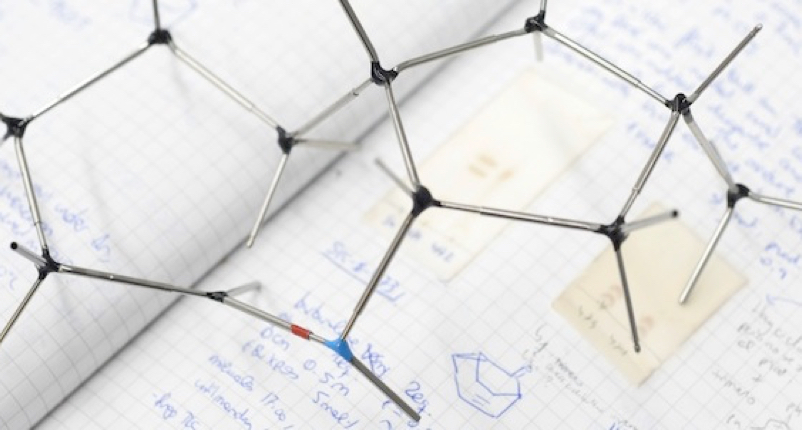Self-Assembly of Di-N-Heterocyclic Carbene-Gold-Adorned Corannulenes on C₆₀
The deprotonation of a corannulene-based bisazolium salt allowed the preparation of a corannulene-based NHC di-AuI complex. The prepared di-AuI-complex was tested in the recognition of fullerene-C60, demonstrating good binding affinity in toluene solution, and producing a host–guest complex with 3:1 stoichiometry, as evidenced by a combination of NMR spectroscopy and ITC titrations. The experimental results are fully supported by DFT calculations. The binding of C60 with the di-AuI complex in toluene solution is enthalpically and entropically favoured. Remarkably, the entropic term is the dominant parameter in the binding process. The good complementarity that exists between the concave shape of the corannulene-di-gold complex and the convex surface of the fullerene, together with the presence of tBu groups and the AuCl fragment are key factors for the measured high affinity between host and guest. The obtained results indicate that fullerene may be acting as a template for the formation of a self-assembled aggregate involving up to three molecules of the di-AuI complex.

C. Mejuto, L. Escobar. G. Guisado-Barrios, P. Ballester, D. Gusev, E. Peris
Chem. Eur. J. 2017, 23, 10644-10651
DOI:
10.1002/chem.201701728

Let's create a brighter future
Join our team to work with renowned researchers, tackle groundbreaking
projects and contribute to meaningful scientific advancements



















